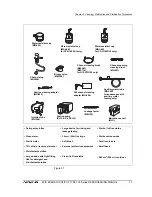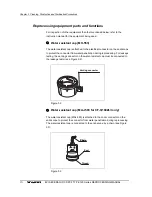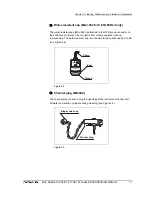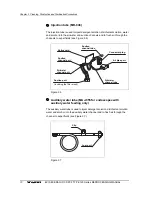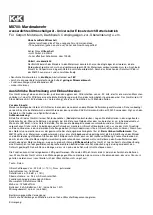
4
Chapter 1 General Policy
EVIS EXERA GIF/CF/PCF TYPE 160 Series REPROCESSING MANUAL
• Olympus confirms validation of the endoscope reprocessors
recommended by Olympus only. If using endoscope
reprocessor that are not recommended by Olympus, the
endoscope reprocessor manufacturers are responsible for
validation of the endoscope reprocessor with the endoscope
models listed in its intended use statement. If using an
endoscope reprocessor, confirm that it is capable of
reprocessing endoscope including all channels. If there are
channels and/or other parts which cannot be cleaned and
high-level disinfected by the endoscope reprocessor, have to
undergo manual cleaning and high-level disinfection or
sterilization as described in Chapter 3, “Cleaning,
Disinfection and Sterilization Procedures” after using the
endoscope reprocessor. Otherwise, insufficient cleaning and
disinfection or sterilization of the endoscope may pose an
infection control risk to the patient and/or operators
performing the next procedure with the endoscope. If you are
uncertain as to the ability of your endoscope reprocessor to
clean and high-level disinfect endoscope including all
channels, contact the endoscope reprocessor supplier for
specific instructions and/or connectors.
• Patient debris and reprocessing chemicals are hazardous.
Wear personal protective equipment to guard against
dangerous chemicals and potentially infectious material.
During cleaning and disinfection or sterilization, wear
appropriate personal protective equipment, such as eye
wear, face mask, moisture-resistant clothing and
chemical-resistant gloves that fit properly and are long
enough so that your skin is not exposed. Always remove
contaminated personal protective equipment before leaving
the reprocessing area.
• Thoroughly rinse off the disinfectant solution. Rinse the
external surfaces of the endoscope, all channels and
cleaning equipment thoroughly with clean water to remove
any disinfectant solution residue.
• The disinfection/sterilization room must be adequately
ventilated. Adequate ventilation protects against the buildup
of toxic chemical fumes.
• Store alcohol in an air-tight container. Alcohol stored in an
open container is a fire hazard and will lose its efficacy due to
evaporation.



















